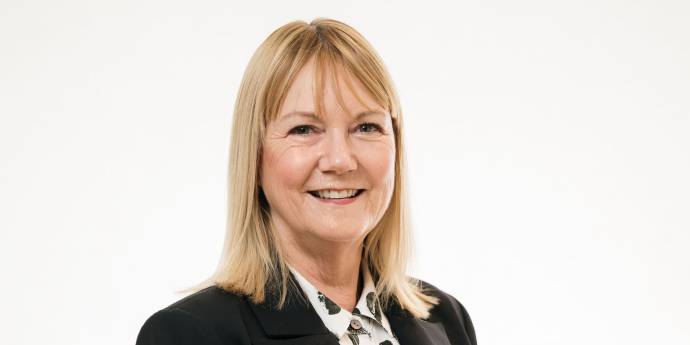Accelerating gender pay equality
Every board should be focussed on addressing the historical imbalance of gender pay disparity.

President of the Institute of Directors Jackie Lloyd CFInstD is a full-time chair and director, with an executive background in human resources – her expertise sits in the intersection between people and organisational performance and long-running businesses with a strong reputation and brand presence.
A champion of diversity, Jackie is a member of Global Women, Chapter Zero NZ and the National Association of Women in Construction. As an independent director, she is the chair of Naylor Love Enterprises Ltd, deputy chair of The Lion Foundation, and on the boards of CentrePort and Museum of New Zealand Te Papa Tongarewa.
This July, she will be speaking at an upcoming (and sold out) event for the Women Directors’ Network about what it means to have your voice heard, along with Linda Robertson CFInstD, Elle Archer MInstD and Karen Coutts MInstD.
This week, Jackie’s book recommendation addresses the things that never change.
Same as Ever: A Guide to What Never Changes by Morgan Housel.
Very accessible – drawing on moments in history and exploring human behaviour, Housel produces 23 very readable short stories. Each vignette focuses on a ‘law of life’ offering valuable lessons to apply in business and life in general.
As chair of Naylor Love (established 1910) and a past deputy chair of NZ Post (founded in 1840), I enjoy working with organisations that have a long and rich history and governing them in a world of ever-increasing complexity. Same as Ever caught my eye as it offered a perspective on what will be the same 10 years from now and, indeed, 100 years into the future.
Perhaps unsurprisingly, while the world is rapidly changing through innovation, technological developments, geopolitics and climate change, it is human behaviour that always stays the same.
One of the book’s central themes is the power of incentives. Housel argues that they are the most powerful force in the world.
So, the book is a good reminder that there are more than just financial incentives. They can be cultural and tribal, where people support things because they don’t want to upset or become banished from their social group.
The use of financial incentives in CEO and executive remuneration is a long-held practice – getting them right takes time and knowledge of the key business drivers and getting them wrong has consequences, including driving perverse and unsustainable outcomes. The book took me back to the Australian Royal Commission into Misconduct in the Banking, Superannuation and Financial Services Industry which inextricably linked culture, governance and remuneration together as the core issues behind the behaviour in the Australian financial services entities at the centre of the report.
It's easy to keep the power of financial incentives to the forefront; equally as strong is the influence of non-financial incentives on culture and governance. The incentive to fit in and not rock the boat can easily show up as ‘unwillingness’ to challenge board colleagues or to be open to alternative perspectives and diverse views.
I am mindful that as directors one of our key roles is to create and reinforce constructive board and organisation cultures, including incentives and rewards (financial and non-financial) that are aligned with progressing the company strategy and broader societal outcomes. Housel believes: “When the incentives are crazy, the behaviour is crazy. People can be led to justify and defend nearly anything”.
It prompts me to think differently – always an enjoyable personal challenge!
Same as Ever is applicable to anyone at any stage of life who is interested in behavioural economics, as it includes lessons beyond business and governance. Interestingly, one of Housel’s lessons is that the first rule of happiness is low expectations.
Vacations are the time I delve into fiction – Lioness by Emily Perkins, winner of the 2024 Ockham Book Awards, is next on my list.
Two significant forces are upon us – climate change and technological change. Both pose opportunities and challenges for organisations. These issues highlight the need for boards to balance immediate operational responses with longer term objectives, right in my zone of interest.
Coming off the back of IoD’s Leadership Conference in May, what continues to follow me around is the panel discussion I took part in – ‘Have Board’s Lost Control’. As boards, we continue to hear increasingly loud voices, often amplified by social media. It’s hard to imagine a board developing a strategy and monitoring performance without external voices, but how often do we discuss which voices need turning up and which need dialing down?
Without a doubt, a successful strategy is one that considers all constituents: shareholders, stakeholders, customers, staff, communities. The list goes on and will be very different depending on the type of organisation. The conference got me wondering about how boards obtain and use information, and to what extent it contributes to decision making.
Living in the world of AI, disinformation and misinformation, what can we no longer take for granted? I’m interested in seeing more healthy curiosity around the board table.